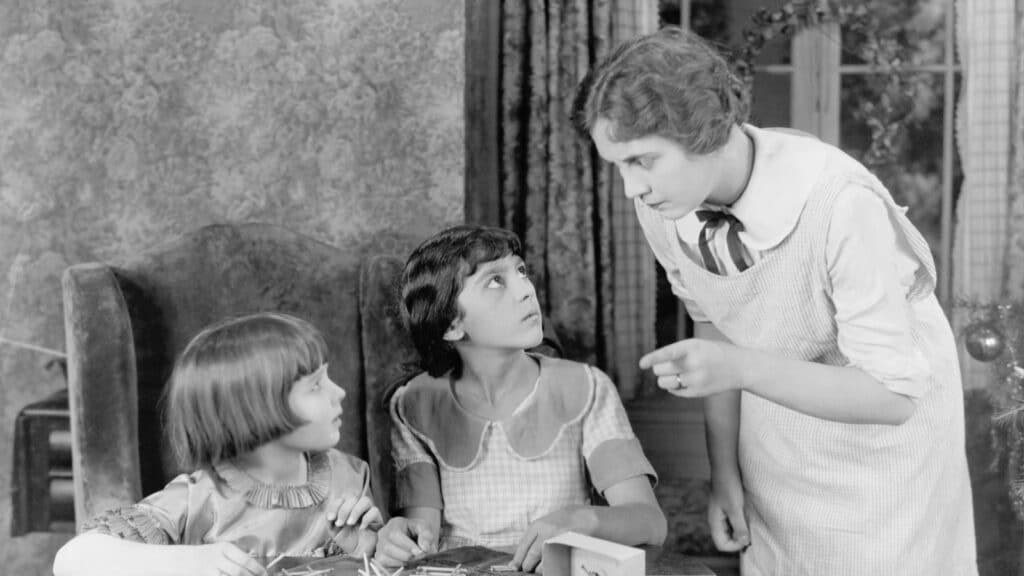In the past, our parents had a way of saying things that sound downright strange now. Some of these came from old sayings. Others came from songs or farm life. As for the rest? They were warnings that were meant to keep kids in line. Here are 17 phrases our parents said that we wouldn’t use today.
Don’t Take Any Wooden Nickels
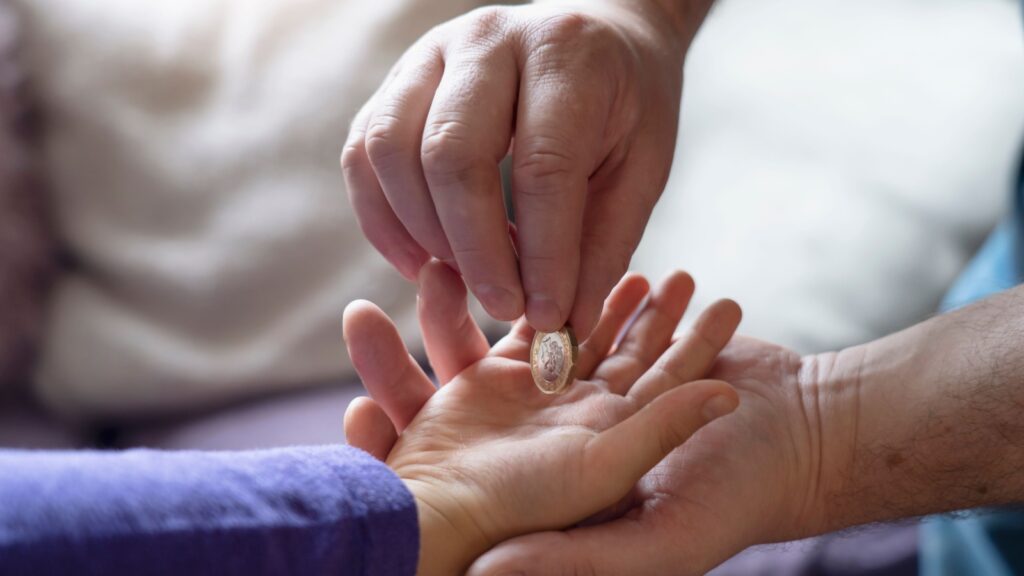
Telling someone to “not take any wooden nickels” was a way of telling them not to get tricked. Wooden nickels were things people gave out as souvenirs at fairs or banks. But they weren’t actual money. Many parents liked to use this phrase as a warning to their children, although it hasn’t really stuck around. After all, who even sees nickels, let alone wooden ones, today?
Heavens to Betsy

Anytime that something surprising happened, people used to say “Heavens to Betsy!” Who’s Betsy? No idea. The phrase didn’t really mean anything beyond showing that someone was shocked. The phrase stuck around for decades. Now, though, it sounds rather antique, and you’re unlikely to hear anyone ever say it.
Quit Crying or I’ll Give You Something to Cry About

Many parents used to say, “Quit crying or I’ll give you something to cry about” during the 1950s and ’60s. They’d use it when their kids were fussing over small things. Essentially, it was a warning for them to toughen up. But we understand now that such a saying is much too harsh. Of course, there are some parents who still say it, but they’re few and far between, as we have a better understanding of children’s emotions.
Adjust the Rabbit Ears

Whenever the picture on the TV went fuzzy, you’d hear someone say, “Adjust the rabbit ears.” It just meant that you had to adjust the metal rods on top of the TV, and maybe someone would tape some foil on for “extra power.” Our TVs are much more advanced nowadays. Most young people have no idea what rabbit ears are, aside from an actual animal’s ears.
We’re On a Party Line, Wait Your Turn
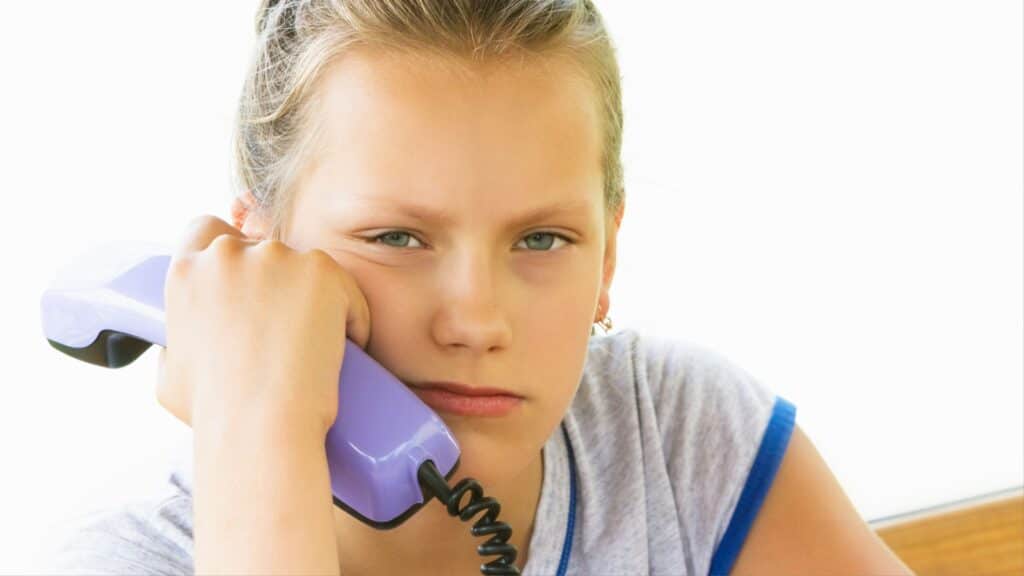
Back in the day, the phone wasn’t always just yours, and sometimes, you’d pick it up to hear a neighbor talking to someone else. They’d tell you that they’re “on a party line” and that you should “wait your turn.” As such, you had to keep conversations short. All your private details? They weren’t so private on a party line. It’s hard to imagine this now, given that everyone’s glued to their own phones.
Call After 7 When the Rates Are Cheaper
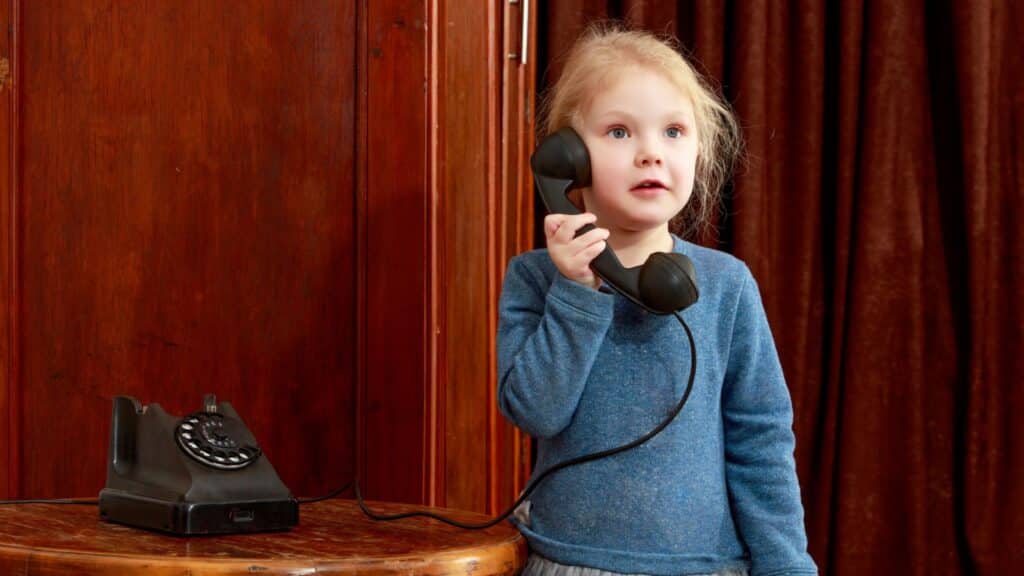
Kids begging to call their friends were often told to “Wait until after 7, when the rates are cheaper.” Long-distance calls used to cost a fortune before unlimited plans existed. As a result, families would literally schedule their social lives around phone company discounts. We don’t really even question picking up the phone anymore. The time of day when you call doesn’t matter anymore because it’s all the same rates.
Don’t Be a Knucklehead

Parents told their kids to “not be a knucklehead” whenever they were doing something dumb, but not dangerous. It was more playful than cruel. The word was everywhere in the ’40s and ’50s, even appearing in some TV shows and comics. But it sounds almost cartoonish these days, and you won’t catch many people saying it with a straight face. “Knucklehead” sounds so bizarre.
Mind Your Ps and Qs
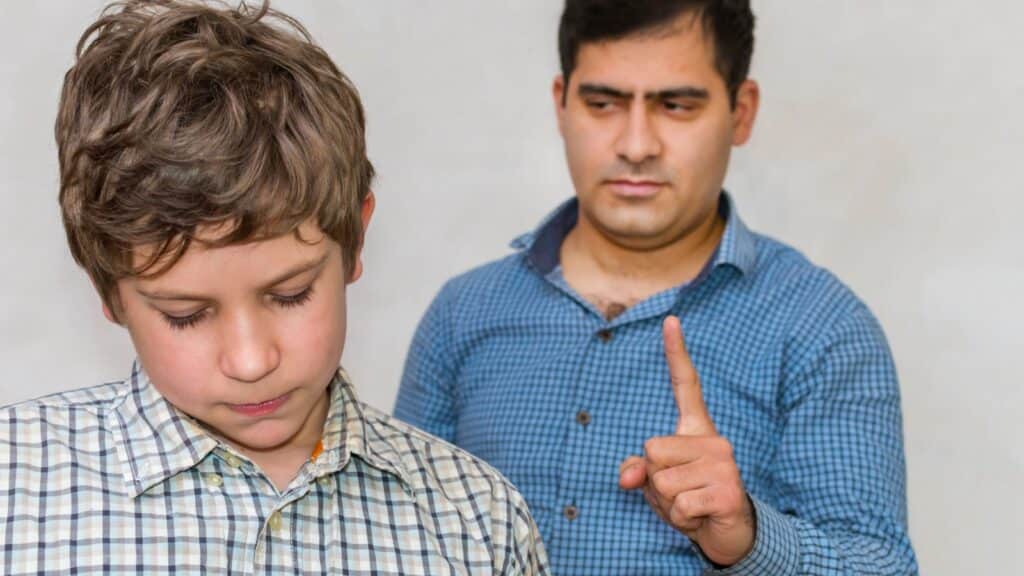
People who grew up hearing, “Mind your Ps and Qs” know how annoying it was. It just meant to watch your manners at the dinner table or in front of guests, but it always carried an air of condescension with it. Honestly, it also sounded a little too formal. That’s why it’s all but disappeared from everyday use, and most parents just say “behave” or “use your manners.”
Stop Being a Smart Aleck

Kids who started getting mouthy would often be told to “stop being a smart aleck.” It carried a lot more weight to it than simply being told you were being too smart, but it also wasn’t harsh enough to be an insult. The phrase was most popular during the mid-20th century. However, you’d be hard-pressed to find a parent using it now because it just sounds outdated.
Wiseacre
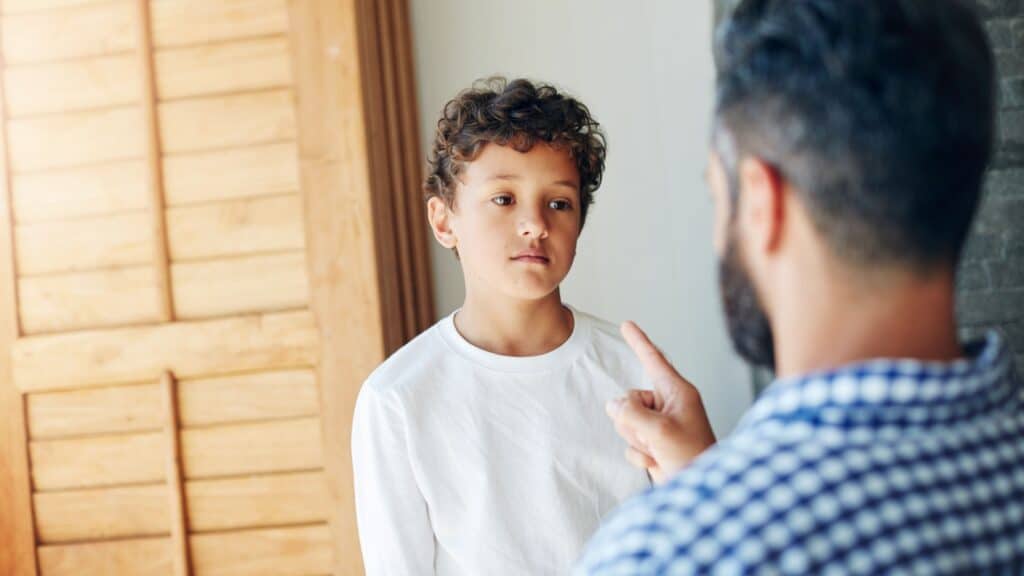
You hardly ever hear people using the word “wiseacre” anymore. But it used to be a popular way to talk about someone who always had a snarky comeback. Parents used it in a way that was half-serious and half-exasperated, especially when a kid thought they were the funniest one in the room. The term itself is centuries old.
Don’t Get Fresh With Me

Teenagers have always tested limits. And those who did so back in the day were told, “Don’t get fresh with me,” which worked as a reminder to drop the attitude. You heard it a lot in ’50s and ’60s movies. Of course, the phrase sounds rather stiff now, and parents will usually just cut straight to “watch your mouth” or simply tell their child, “don’t be disrespectful.”
Nervous Nellie

It’s natural to feel worked up before tests or games, even public performances. In the past, parents would try to calm things down by saying, “Don’t be a Nervous Nellie.” The name almost became a kind of shorthand for “stop overthinking,” and the phrase was catchy enough to spread widely for a while. Yet the phrasing feels so dated. Most people wouldn’t even know what it means.
Don’t Get Your Dander Up

When tempers flared, parents would cut in with the command to “not get your dander up.” It was their way of saying cool off before things blew up, although nobody really stopped to think about what “dander” even meant. It was just a family phrase that made sense at the time. By the 80s and 90s, the phrase had already begun sounding outdated, and you’ll hardly ever hear it today.
Don’t Make a Federal Case Out of It

Parents often told kids who made a big deal out of nothing that they shouldn’t “make a federal case out of it.” Essentially, it meant stop exaggerating and calm down, then move on. This phrase probably stuck around because actual federal cases were in the news a lot mid-century, so people borrowed the wording to talk about everyday squabbles. Now it just feels clunky. We’d rather tell people to simply “chill.”
Fuddy-Duddy

A person who refused to try something new or complained about what others were enjoying was a “fuddy-duddy.” And people used to tell you not to be that. It allowed you to call someone boring without being mean, and the phrase had a silly rhythm to it that helped it to stick around for a while. However, it’s rather outdated now.
Button Your Lip

A parent who wanted silence wouldn’t sugarcoat it. They would just tell their child, “button your lip,” whether they were in the car or in church. They’d even say it when company was over. It wasn’t meant to be cruel, but it sometimes came across that way, and most parents tend to avoid it these days. They’ll say something simpler like “be quiet” or “zip it.”
I’ll Tan Your Hide

This was one of the harsher threats parents used when kids pushed too far. Of course, “I’ll tan your hide” didn’t always mean literal punishment, but simply saying it was enough to stop most kids in their tracks. It came from rural sayings about tanning leather and hung on for a long time in American households. But the parenting style behind it has mostly disappeared, as has this phrase.
19 Things Our Parents Did That Would Be Called ‘Neglect’ Today

70s, ’80s, or even ’90s parents did not hover over us or track our every move. They just handed us over a bike, a key, and some vague advice: “Don’t die.” And somehow we lived to tell the tale. Here are things our parents did that would probably land them on a parenting “no-no” list today.
19 Things Our Parents Did That Would Be Called ‘Neglect’ Today
18 Things Moms Say That Kids Internalize for Life

Beyond the big emotional speeches, it’s the offhand comments and the sighs, the throwaway lines that stick with us. She barely remembers saying it. But somehow, you do. Here are 18 things moms say that kids internalize for life.
18 Things Moms Say That Kids Internalize for Life

